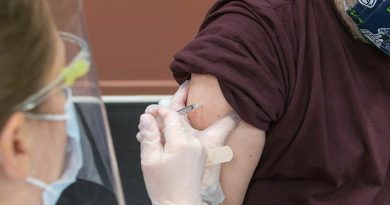English clergy protest 4-week worship ban By Mark Michael
By Mark Michael
THE ARCHBISHOP of Canterbury, the Archbishop of York and the Bishop of London joined England’s Roman Catholic cardinal, the chief rabbi, and senior Muslim, Sikh and Hindu leaders in protesting UK prime minister Boris Johnson’s decision to ban public worship for four weeks.
“We strongly disagree with the decision to suspend public worship during this time,” the faith leaders wrote in a Nov. 3 letter. “We have had reaffirmed, through the bitter experience of the last six months, the critical role that faith plays in moments of tremendous crisis, and we believe public worship is essential.”
The nationwide lockdown, which public health authorities have urged since coronavirus cases began to increase rapidly three weeks ago, takes effect on November 5. Pubs, restaurants, non-essential shops and gyms will also be shuttered, though schools and universities may remain open. The prime minister said there was “no alternative” to the extensive restrictions.
While churches were not mentioned in the initial announcement, later guidance clarified that they could remain open for private prayer and for broadcasting worship services. Funerals may also be held, with attendance restricted to 40, but most weddings are banned. The restrictions are less draconian than those proposed in the spring, when even entering the church for live streaming was prohibited by directives issued by Archbishop of Canterbury Justin Welby and then-Archbishop of York John Sentamu. The current Archbishop of York, Stephen Cottrell, signed the Nov. 3 letter.
The religious leaders’ public letter notes the great efforts religious communities have undertaken to protect worshippers since public services could resume in July and argues there is “no scientific justification” for the severe restrictions.
They also said that worship was essential to the social support that religious congregations provide, noting that “without the worshipping community, our social action and support cannot be energized and sustained indefinitely. Our commitment to care for others comes directly from our faith, which must be sustained and strengthened by our meeting together in common worship.” Communal worship, they also said, is also invaluable as a means of coping with trauma and loss caused by the pandemic, especially among ethnic minority communities. They also described it as “an essential sign of hope” and “part of the journey to recovery.”
The Rev. Ian McCormack, vicar of St. George’s in the Meadows, an Anglo Catholic congregation in Nottingham, agreed with interfaith leaders’ assertion that public worship had been safe. “Since churches were allowed to reopen, we have gone to great lengths to make our buildings Covid-secure,” he said. “Indeed, many people have commented that they feel safer inside church than in any other indoor public setting. I am unaware of any evidence which suggests churches are hotspots for infection, which is why a number of bodies have called upon the government to release such information if it exists.”
“In the absence of such evidence,” he added, “the decision to ban public worship is disproportionate, damaging to the mental and spiritual wellbeing of countless numbers of people, and probably illegal since it is contrary to the freedoms guaranteed in the European Convention on Human Rights. This is not about denying the seriousness of the virus; but it is one part of ensuring that life remains worth living as we learn to exist alongside it.”
Forward in Faith, the traditionalist Anglo Catholic organization, is among the bodies calling for such evidence of necessity. In a November 1 statement the group also claimed that Johnson’s government “has ignored the profoundly harmful impact on the mental and spiritual welfare of many which such a ban would provoke.” Christian Concern, a conservative public interest group, has indicated it has plans to file a lawsuit against the restrictions, citing infringements of religious liberty similar to those raised in September by religious leaders in Quebec.
The Rt. Rev. Christopher Chessun, Bishop of Southwark, urged clergy and lay leaders to contact their members of Parliament to express opposition to the ban on worship. He protested in a Nov. 2 pastoral letter: “the church is not a branch of the leisure or hospitality industries with a tap that can be turned on and off by politicians at will. The right to freedom of religion is enshrined in Magna Carta and it is of the very essence of our common life that the liberties and freedoms of the people of this land extend to public worship.”
The Rev. Marcus Walker, rector of St. Bartholomew the Great, London’s oldest church, urged Johnson to reconsider, citing enduring conservative principles in a column in The Spectator. “Boris Johnson is a Conservative Prime Minister,” Walker wrote. “He is also an instinctive Tory. I hope that he will remember his essence and fight, as any good Tory should, that the Church should be free — that the people committed to his charge by the Queen (who promised at her coronation ‘to maintain and preserve inviolably… the worship’ of the Church) should be free to worship their gods as our rights and liberties have always afforded us.” –The Living Church




